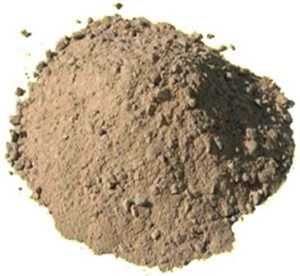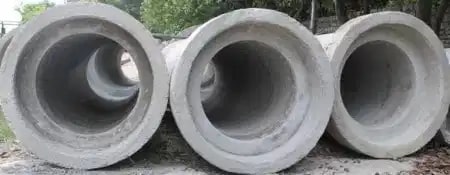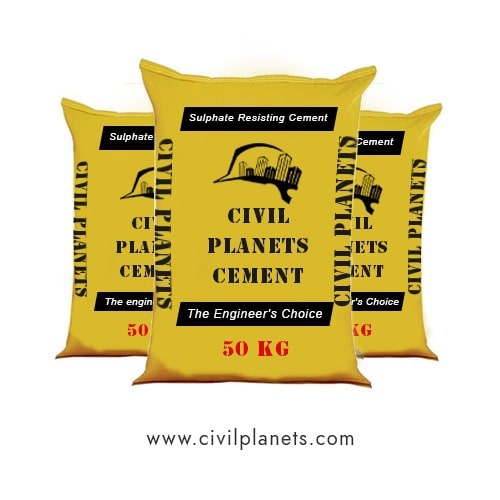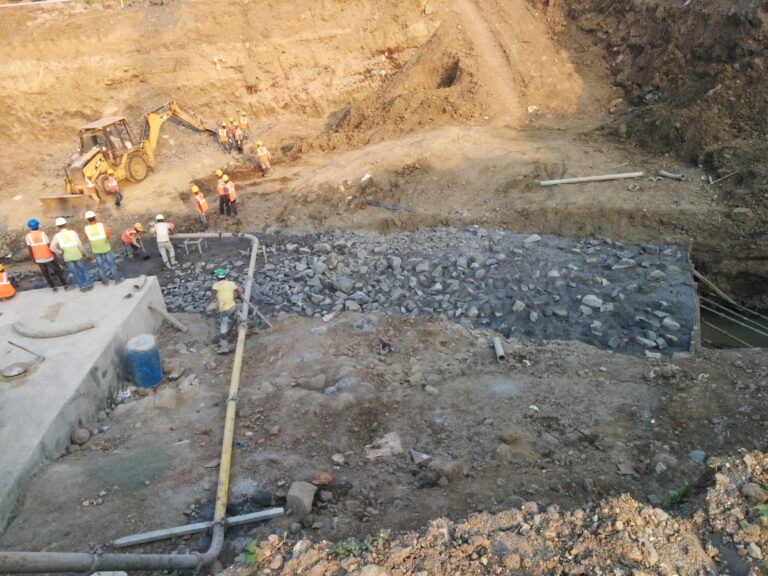A right selection of cement may increase the life of the structure and prevent the chemical attack.
Generally, the concrete will face chemical attacks such as

- Sulphate Attack – Seawater
- Acid attack
- Chloride attack – groundwater sometimes contains chloride.
- Carbonation – Carbon dioxide in the surrounding
Special Types of Cement required for these kinds of acid attacks.
We can use SRC for a normal construction structure; however, it will be beneficial only when the structure is under the attack of sulphate like seawater piers.
In this post, we are going to discuss the sulphate resisting cement and its advantages & disadvantages.
What is sulphate resisting cement?
The sulphate resisting cement is a type of cement that has low Tricalcium aluminate (C3A) & Tetracalcium aluminoferrite (C4AF) content and high Tricalcium silicate (C3S) content than the normal chemical composition of OPC.

Composition Of Sulphate Resisting Cement
Tricalcium aluminate & Tetracalcium aluminoderrite will be reduced in % by weight (< 5%), making the cement as sulphate resistant.
In nature
- Tricalcium aluminate (C3A) liberates much heat during the early stage of hydration.
- Tricalcium silicate (C3S) is responsible for quick hydration and cement hardening.
Chemical Composition of Portland Cement
| Compounds of OPC Clinker | Formula | Shorthand form | % by weight1 |
| Tricalcium aluminate | Ca3Al2O6 | C3A | 10 |
| Tetracalcium aluminoferrite | Ca4Al2Fe2O10 | C4AF | 8 |
| Belite or dicalcium silicate | Ca2SiO5 | C2S | 20 |
| Alite or tricalcium silicate | Ca3SiO4 | C3S | 55 |
| Sodium oxide | Na2O | N | (Up to 2) |
| Potassium oxide | K2O | K | |
| Gypsum | CaSO4.2H2O | CSH2 | 5 |
Properties of Sulphate Resisting Cement
| PROPERTIES | VALUE |
| Initial setting time | 30 minutes |
| Final setting time | 10 Hours |
| Average Compressive Strength @ | |
| 3 Days | 10 Mpa |
| 7 Days | 16 Mpa |
| 28 Days | 33 Mpa |
| Soundness | |
| Lechatelier (mm) | 2 (max) |
| Autoclave | 0.25(max) |
Advantages
- High durability under aggressive conditions.
- Low heat development during hydration comparing other types.
- SRC cement protects the structure from the sulphate attack.
- Mostly sulphate resisting cement is used to construct the underground structure where sulphate resistant is needed much.
Disadvantages of Sulphate Resisting Cement
- Costly
- Not suitable for marine construction
- Not ideal for the areas where there is a danger of chloride attack



